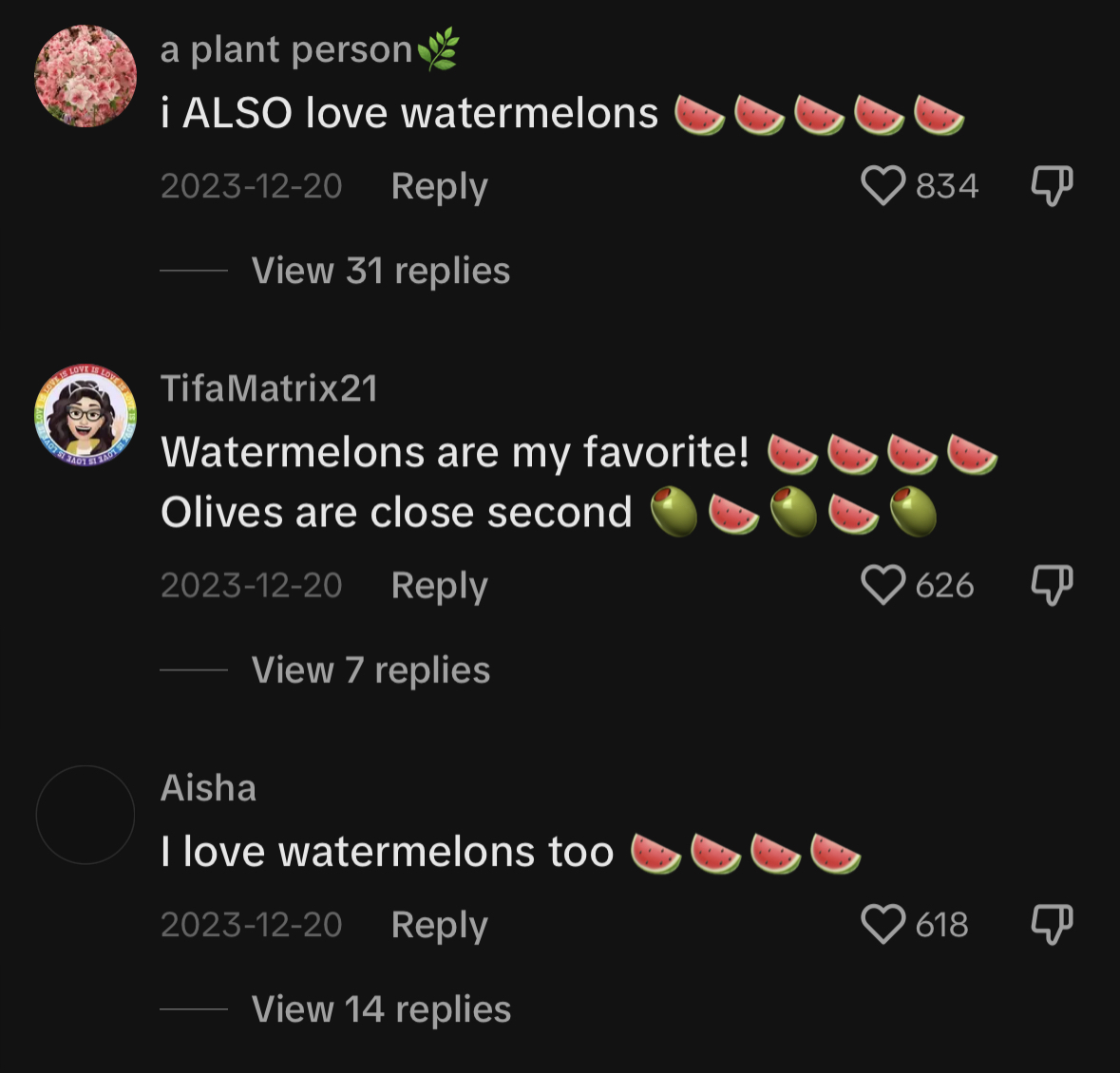In times of conflict, there are bound to be symbols of freedom for those being silenced. As the Israel-Hamas war has progressed, many Palestinian allies have chosen their symbol of freedom to be the watermelon. However, the symbol’s inspiring meaning has been lost through misuse on social media and little education has been given on the symbol’s true purpose and meaning.
The watermelon has deep roots in Palestine, going back to the Six-Day War of 1967. During this time, Israel seized the West Bank and Gaza. The Israeli government banned the display of Palestinian flags. In protest, Palestinians walked the streets with cut open watermelons, the same colors of their flag. Since then, Palestinian people and allies of the group have “claimed” the watermelon as a symbol of their freedom and their movement.
Within the last few months on TikTok, activists are posting about the watermelon symbol and spreading valuable information about its purpose. Comment sections are filled with the watermelon emoji as a way to show support for Palestine and against the ongoing conflict. Sarah Naffar (@sarahnaffar), a TikTok activist, said watermelon emojis are used because some countries have censored the Palestinian flag emoji.
While I’m all for symbols of freedom, this particular symbol has been less productive than others. This is due to the way that those on social media are portraying the symbol. Rather than spreading awareness of what the symbol means and its history, users on TikTok and other social media sites have been using the watermelon in ways that diminish its significance. Some have been more focused on discreetly using the symbol, commenting things like “I love watermelon, it’s my favorite fruit,” or just commenting with dozens of watermelon emojis.
Furthermore, these comments are on TikToks that have no relation to the conflict, such as makeup tutorials or vacation vlogs. This disconnect and lack of transparency ruins the significance of the symbol and masks its true purpose.
In addition, some creators have made TikToks asking their followers to target specific creators’ comments as an attempt to create a mini-movement. For example, Angie Marie (@angie__mariie) has targeted the popular creators Monet McMichael and Alix Earle, two TikTok influencers who have a substantial amount of followers. These comments had no educational value and were just spams of watermelon emojis, which reduces the symbol’s value.
Rather than spreading awareness and raising support, people are using the emoji in meaningless ways. As a result, most people, including me, get confused by the large number of watermelon emojis flooding comment sections.
Despite limited information being spread regarding the symbol, there are alternative actions taken using the symbol that have been effective. One creator, Jourdan Johnson (@xojourdanlouise), created a filter that, when used in videos by other creators, raised money for “humanitarian aid” in Gaza. To use the filter, one must trace their finger on a path along their screen, which depicts a collection of watermelon seeds. With each use, Johnson received commission, and after 10.8 million posts, raised the maximum commission of $14,000, which she claims will be donated to organizations like Doctors Without Borders and Human Appeal.
While there is some action being taken to inform the general public on the meaning behind the watermelon, most instances in which I’ve encountered the watermelon hide its true meaning. These targeted comments confuse the general public and diminish its purpose.
Spreading more awareness about the purpose of the symbol would greatly aid in gaining support against the conflict while simultaneously keeping the true meaning of the watermelon apparent.

